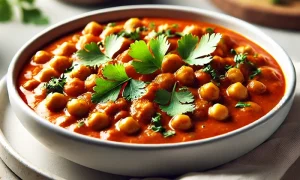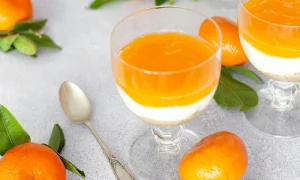Vegan Alternatives for Honey

Honey, a natural sweetener known for its rich flavor and sticky texture, has long been a staple in many diets. However, those following a vegan lifestyle avoid honey due to ethical considerations regarding bee welfare and the natural environment. As a result, a variety of plant-based alternatives that mimic honey’s sweetness have gained popularity, allowing vegans to enjoy familiar tastes without compromising their values.
These vegan honey alternatives not only serve as direct replacements in terms of taste and consistency but also align with vegan principles. They are derived from various plant sources and processed in ways that aim to replicate the texture and flavor profile of traditional honey. Many of these substitutes are readily available on the market and can be used in a wide spectrum of culinary applications, from sweetening beverages to creating delectable baked goods.
Key Takeaways
- Honey alternatives align with vegan ethics and offer similar sweetness.
- Plant-based honey substitutes are versatile in culinary use.
- Vegan sweeteners are widely accessible and can support sustainability.
- Agave nectar, maple syrup, fruit- and grain-based sweeteners are common honey alternatives
Popular Vegan Honey Alternatives
When looking to replace honey in your diet, you have a variety of plant-based sweeteners at your fingertips. These alternatives not only mimic the texture and sweetness of honey but also come with their own unique flavors and benefits.
Agave Nectar and Syrup
Agave nectar is a sweetener derived from the sap of the agave plant. Known for its thin, syrupy consistency and a sweetness stronger than honey, it’s an excellent vegan honey substitute particularly in beverages because it dissolves well. Similarly, agave syrup offers a neutral flavor, making it versatile for a range of dishes, from sweet dressings to baked goods.
Maple Syrup and Maple Sugar
One of the most favored honey alternatives is maple syrup, appreciated for its rich, complex flavor and natural production. Extracted from the sap of maple trees and boiled down, maple syrup contains antioxidants and can provide a more robust flavor to recipes. For a granular option, maple sugar—made from evaporated maple syrup—serves as a novel way to sweeten your coffee or sprinkle on oatmeal.
Fruit-Based Sweeteners
Sweeteners made from fruit offer a spectrum of flavors and are often seen as healthier alternatives due to the presence of natural fruit fibers. Date syrup or paste is made from concentrated date juice, carrying a caramel-like taste that enriches baked goods, yogurts, or marinades. Meanwhile, coconut nectar, extracted from the sap of the coconut palm, boasts a low glycemic index and a mild taste, perfect for those watching their sugar intake.
Grain-Based Sweeteners
Grains can also be a source of sweetness.
- Brown rice syrup has a buttery, caramel flavor and a sticky texture, comparable to that of honey; a choice ingredient in cereal bars or as a glaze for desserts.
- Barley malt syrup offers a malty, less-sweet profile, ideal for bread recipes and as a topping for pancakes.
- Sorghum syrup, a lesser-known but equally useful sweetener, contributes a bittersweet tang, akin to molasses, great for baking or to enhance savory sauces.
Understanding Honey and Its Role in Diets
Honey, a natural sweetener you might enjoy for its rich taste, is much more than just a sugar substitute in your diet. Made by honey bees, it’s a product of their ceaseless labor, nectar collection, and intricate honey production processes.
In terms of nutrition, honey provides more than a mere sweetness; it contains antioxidants, trace minerals, and has been valued in traditional medicine. It’s important to recognize that honey’s nutritional content can contribute to your overall health, beyond its role in enhancing the flavor of your food.
Here are some key points about honey in your diet:
- Natural Sweetness: Honey’s unique taste comes from the variety of flowers visited by bees.
- Health Benefits:
- Antioxidants: May help in reducing oxidative stress in the body.
- Minerals: Contains small amounts of various minerals.
| Use | Benefit |
|---|---|
| In Tea | Soothes Throat |
| As a Topping | Enhances Flavor |
However, honey is more calorie-dense than sugar, so moderation is key. If you’re seeking alternatives for ethical or dietary reasons, such as veganism, there are several plant-based substitutes that mimic honey’s texture and sweetness. Vegans often choose not to use honey to prevent exploitation of bees and to minimize impact on honey bee populations.
Understanding the full spectrum of honey’s role in diets helps you make informed choices, whether you continue to include it or seek out other sweeteners that better align with your nutritional goals or ethical stance.
Why Vegans Avoid Honey
When you adopt a vegan lifestyle, one of the key aspects is to avoid animal products to minimize exploitation and environmental impact. This principle extends to why you might choose to avoid honey.
Ethical Considerations
Honey bees are not only producers of honey; they are sentient creatures with intrinsic value. In veganism, the core belief is that all animals should live free from exploitation. Beekeeping often involves manipulating the hives and bees for maximum honey production, which can result in harm or stress to the bees. For example, it’s not uncommon for wings of queen bees to be clipped, a practice that prevents them from leaving the hive and ensures the control over the colony. Furthermore, during commercial honey harvesting, bees can be killed or injured, and vegans perceive these acts as unnecessary exploitation of animals for a product that can be replaced by other sweeteners.
Environmental Impact on Bees
- Bee populations, including wild bees and bumble bees, are essential for the environment as they are pollinators that help in plant reproduction and biodiversity.
- Certain beekeeping practices can contribute negatively to the health of bee colonies and, by extension, affect other wild bee populations and the broader ecosystem.
- Honey bees can compete with local wild pollinators for resources, which could lead to a decline in diverse wild bee populations.
In living a vegan lifestyle, you might choose alternatives that do not contribute to these environmental issues. By doing so, you support practices that are more in line with preserving the natural functions of pollinators and adhering to a lifestyle that respects all animals.
Health and Nutrition of Vegan Sweeteners
When considering vegan sweeteners, it’s important to weigh their nutritional content, glycemic impact, and micronutrient profile. These factors can greatly influence your health and diet.
Nutritional Content Comparison
Vegan sweeteners vary widely in their nutritional content. For instance, when comparing calories, molasses offers about 58 calories per tablespoon, while alternatives like agave nectar typically contain closer to 60 calories for the same amount. In terms of protein, sweeteners are generally low, but date paste is a notable exception, providing a small amount of protein and fiber.
- Molasses: Rich in iron and calcium
- Date Paste: Contains fiber, potassium, and magnesium
Low Glycemic Alternatives
If you’re watching your blood sugar, low glycemic index sweeteners are a priority. Agave nectar scores relatively low on this scale, which means it can cause a lesser spike in blood glucose levels compared to high-glycemic options like white sugar. It’s essential to remember that while lower on the glycemic index, moderation is key, as caloric intake still matters.
Vitamin and Mineral Content
Some vegan sweeteners contribute essential nutrients that aid in maintaining your health. For example, blackstrap molasses is a powerhouse of minerals including iron, calcium, and potassium. Date paste and agave nectar, while not as mineral-rich as molasses, can offer trace amounts of vitamins and minerals such as vitamin B6 and selenium.
- Blackstrap Molasses: Excellent source of calcium, iron, and potassium
- Date Paste: Provides vitamins, minerals, and antioxidants
Culinary Applications of Vegan Honey Alternatives
Vegan honey alternatives can transform your cooking and baking endeavors, offering unique flavors and textures while adhering to plant-based principles.
Baking with Vegan Sweeteners
When baking, substitutes like barley malt syrup can seamlessly replace honey with a 1:1 ratio. It imparts a rich, malty flavor that complements ingredients such as whole grains and spices. For instance, in a recipe that calls for honey, using barley malt syrup not only maintains the desired sweetness but also adds a depth of flavor often associated with traditional baked goods.
Vegan Alternatives in Breakfast Foods
Your morning favorites like pancakes and oatmeal can still enjoy the sweetness of honey by opting for maple syrup. This versatile syrup delivers a flavor that is slightly different from honey—often richer and more complex. Drizzle it onto pancakes or stir into oatmeal for a satisfying start to your day. For a more robust taste, choose darker maple syrup varieties.
Creating Sauces and Dressings
Incorporating vegan honey alternatives into sauces and dressings can greatly enhance their taste profile. Vegan honey alternatives, created to mimic honey, can be used to sweeten dressings, BBQ sauces, and marinades, adding a familiar yet plant-based twist.
Snacks and Granola
Granola often relies on honey for both sweetness and clumping, but maple syrup can serve a similar purpose. When making granola, replacing honey with maple syrup will not only sweeten the mix but also help in forming those satisfying clusters. Be mindful of the cooking temperatures, as some alternatives may caramelize differently than traditional honey.
Consumer Availability and Shopping Tips
With the rising popularity of vegan diets, finding vegan honey alternatives has become more convenient than ever. Whether you prefer shopping at grocery stores or browsing online, you have a plethora of options that cater to a vegan lifestyle.
Finding Vegan Honey Alternatives in Stores
When you’re perusing the aisles of your local grocery stores, you’ll often find vegan honey substitutes shelved alongside other sweeteners or within the natural foods section. These can be in the form of agave syrup, maple syrup, or even products made from brown rice. Vegan alternatives are typically labeled clearly, making them easier to spot.
Online Shopping and Availability
For a wider selection, turn to online shopping where you can explore various vegan honey alternatives. Many specialized vegan products that might not be available at your local store can easily be found online. Instagram is a great tool to discover new brands and user reviews of these products. Additionally, online retailers often provide detailed product descriptions and ingredients lists, ideal for the discerning consumer.
Reading Labels for Vegans
Reading labels is imperative when shopping for vegan products. Many alternatives might seem vegan but could contain additives derived from animal products. Always check for certifications such as Non-GMO Project Verified or Certified Vegan to ensure the product adheres to strict vegan standards. Remember, ingredients like “natural flavors” can be ambiguous, so when in doubt, research the brand or reach out to them directly for clarification.
Environmental and Sustainability Considerations
As you explore plant-based alternatives to honey, it’s essential to understand their environmental impacts, focusing on both sustainability in crop cultivation and the influence on bee populations that sustain agriculture.
Crop Cultivation and Sustainability
Cultivating crops for plant-based sweeteners necessitates practices that maintain the health of the soil and surrounding ecosystems. When you choose a sweetener, check if it’s sourced from sustainable agriculture which minimizes pesticides usage, prevents soil degradation, and conserves water. For instance, agave nectar is a popular vegan honey substitute; however, its cultivation is sustainable when farmed in a manner that avoids monoculture and promotes biodiversity.
Impact on Beekeeping and Agriculture
Bees play a crucial role in pollinating a diverse range of crops crucial to agriculture and food production. Your choice of honey alternatives can affect beekeeping practices. Some argue that by supporting animal agriculture in the form of beekeeping, you’re also supporting pollination efforts that benefit the environment. Conversely, plant-based options may lessen reliance on bees, possibly reducing the stress commercial beekeeping imposes on bee populations. It’s a balance: fostering healthy bee colonies is vital, yet so is the push towards more plant-based and sustainable practices.
Frequently Asked Questions
Exploring alternatives to honey is essential for vegans who wish to avoid animal products without compromising on sweetness. These FAQs cover commonly sought-after information on vegan honey substitutes.
What are some vegan-friendly substitutes for honey in baking and cooking?
In your baking and cooking adventures, you can substitute honey with agave nectar, apple sauce, or even banana puree, all of which offer sweetness and can provide moisture in recipes.
How do I make a vegan honey alternative at home?
You can quickly whip up a homemade vegan honey by combining ingredients such as apple cider vinegar with agave syrup or dissolving sugar in hot water with a touch of lemon juice to mimic honey’s texture and flavor.
What are the reasons why traditional honey is not considered vegan?
Traditional honey isn’t considered vegan because it’s an animal product, and harvesting it can interfere with the natural life cycles of bees, which is against vegan principles of avoiding animal exploitation.
Can maple syrup be used as a vegan alternative to honey, and are all types vegan?
Maple syrup is a fantastic vegan alternative to honey due to its similar sweetness and texture. Ensure that it’s pure maple syrup as some varieties may contain animal-based ingredients or additives.
What options are available for vegans seeking a honey-like sweetness for diabetes-friendly recipes?
Vegans looking for a honey-like sweetness in diabetes-friendly recipes can consider using stevia, which is much sweeter than sugar but has a negligible effect on blood glucose levels, or monk fruit sweetener, which also does not elevate blood sugar.






